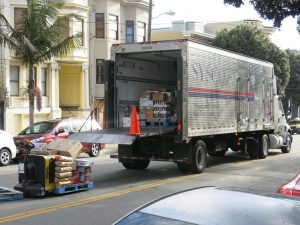First and foremost, let’s tell you what a shipping container exactly is. It is a container which has the required strength to withstand shipment, storage, and handling. They are large, reusable steel boxes, varying in sizes and diameters. Mostly, they have a closed top and hinge doors. And by now, you have probably noticed the trend how these steel boxes are popping up everywhere, being used in so many more ways than mere shipping and storage. Have you ever played with a set of Legos? We all have during our glorious childhood days, right? Well, shipping containers take us down the memory lane — just as Lego, these units are so much simpler to stack and connect together. They can provide quite a lot when it comes to temporary as well as permanent space.
These units come in two standard sizes, the 20-footer, and the 40-footer. They started their existence with shipping goods by boats or ships from one port or the other. Today, when after 10-15 years, the containers reach their expiry date, and are no longer allowed to be used in the marine industry, they have found various interesting uses out of it. Yes, you can use them for storage, residential purposes, office spaces, and whatnot. So it’s the perfect time to go for a shipping container hire in Auckland. Hardcase Container Hire Ltd. is known for their most affordable, top quality shipping container rental services in West Auckland. They also have the facility of using the powerful Hiab crane which helps them to position these containers in the oddest of locations.
Some of the pros and cons for both used and new shipping containers
Storage containers are finding use in multiple industries and sectors all over the economy. Some of these are construction, medical, education, government, retail and even residential. They are best transported and placed if you go for a hiab hire in Auckland, there are a few trusted container rental companies which have this facility of transportation using a hiab. So, make sure you choose the correct company when going for the rental/purchase. This guide will definitely help you make a more informed choice.
- Pros of new : New containers have quite a few advantages such as getting your hands on a brand new, pristine container with no dents or scratches. Also, there will be no risk of contamination from a previous usage. They come with brand new seals, and are everything from air tight to watertight etc. Also, they are easier to be modified into pop up stores, roadside restaurants etc. And finally, needless to say, a new container shall have a much longer warranty, and give you complete peace of mind.
- Cons of new: When it comes to the disadvantages of purchasing new containers, there are two main ones. One, the cost. Obviously, brand new containers are going to be much more expensive than used ones, and may not fit into your budget. And second, they are too good for mere storage. If you are considering storing old documents, machinery and nothing too sensitive, we don’t think it’s worth paying all that extra money for a brand new container.
- Pros of used: Just like new containers, even used containers too have quite a few feathers in their crown. Starting from serving as excellent on-site mobile offices, especially on construction sites (that don’t need the brand-new aesthetics, but just the good old container!). They are one of the most affordable, pocket friendly options and can really help you save big bucks. Decent quality second hand shipping containers serve as perfect portable toilet facilities at events, concerts, etc. Also, if you are planning to hire out containers to others for transport or storage, they are a much more profitable option.
- Cons of used: Irrespective of whether you are planning to use the container for transport of for storing sensitive items, you have no idea what’s been in it before, making it a riskier choice. Also, the years of use may not have allowed it to retain its airtight qualities. And very importantly, every container has a lifespan of 12-15 years, so if you are buying one which is 8-9 years old, you won’t be able to get much use out of it before it ends up in the landfill.
So, voila, we told you about the positive and negatives of both the options. Now, it all boils down to you and your requirements. Depending on what you consider important and what you want, you can take your pick.


